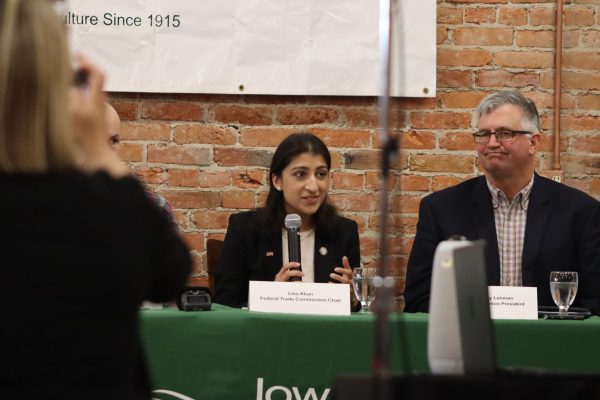Marijuana, gay marriage legalized in state initiatives
November 9, 2012
While certainly the biggest race, the presidential election was not the only vote in which people had to decide. Many state initiatives across the country, such as legalizing marijuana and gay marriage, were on the ballot Tuesday.
Two states, Washington and Colorado, voted to legalize recreational marijuana use. However, the federal government still sees marijuana as a Schedule I drug. This classifies it as having high potential abuse, no medical use and not safe to use under medical supervision.
“The U.S. Constitution and laws that are enacted under it, which means Congress, supersede anything that states do — that’s the big issue here,” said Mack Shelley, ISU university professor of political science and statistics.
This has already been causing conflict between the federal government and the 18 medical marijuana states, specifically California, which legalized it in 1996. One way to stop this is to change the federal laws.
“The obvious problem is we still have a divided Congress,” Shelley said. “From a Republican perspective, they have generally been supportive of states’-rights kinds of arguments. So if somebody could convince Republicans that, on a states’-rights basis, they should let this sort of thing go ahead. Democrats, I believe, would tend to support this on general principles, not so much a states’-rights issue, but a freedom of choice.”
The laws in both Washington and Colorado, set to take effect Dec. 6, will only allow those 21 and older to buy marijuana.
The future of how the federal government chooses to react to the new laws is still unclear.
The other major issue voted on in several states was gay marriage. The number of states that allow same-sex marriage is now up to nine.
“Maryland, Maine and Washington voters, in every case by a small majority, voted in favor of gay marriage,” Shelley said.
Minnesota also had a same-sex marriage initiative on the ballot, but not for legalization.
“In Minnesota, the vote didn’t legalize gay marriage,” Shelley said. “Gay marriage is still illegal under Minnesota law. The point of the Minnesota vote was that if it had passed, it would have written into its constitution that gay marriage is unconstitutional. Basically, it would be hard to change later.”
These nine states face a similar situation as the marijuana laws. The federal government has a different set of laws than these states.
“Right now, when the federal law is written, there are all sorts of prohibitions under this Defense of Marriage Act that make it difficult for anyone who is in a same-sex marriage relationship to receive benefits under federal law,” Shelley said. “This Defense of Marriage Act is exactly the thing that … gay marriage supporters will have to fight their way through in Congress. Getting rid of it is not going to be easy at all.”
















